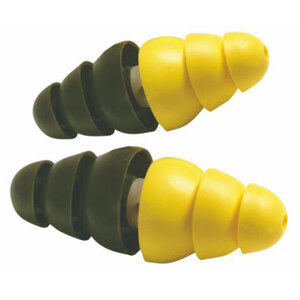 This settlement that 3M agreed to is “$5 billion more than the debtors advocated to this court was an amount sufficient to resolve such claims," and it is thanks to both the official committee of unsecured creditors for tort claimants, the CAE committee, and the group of eight law firms, reported Law360. Both sides had won verdicts and negotiations seemed stalled, until 3M failed in an attempt to move the lawsuits to bankruptcy court. In January 2023, 3M disclosed it had spent $466 million on attorney’s fees so far. By August, both sides agreed to the $6.01 billion settlement amount. “This historic $6 billion settlement resolves the largest MDL in American history,” said one Minnesota lawyer. “Representing our country’s servicemembers through all phases of this hard-fought litigation against 3M was the highest honor.”
This settlement that 3M agreed to is “$5 billion more than the debtors advocated to this court was an amount sufficient to resolve such claims," and it is thanks to both the official committee of unsecured creditors for tort claimants, the CAE committee, and the group of eight law firms, reported Law360. Both sides had won verdicts and negotiations seemed stalled, until 3M failed in an attempt to move the lawsuits to bankruptcy court. In January 2023, 3M disclosed it had spent $466 million on attorney’s fees so far. By August, both sides agreed to the $6.01 billion settlement amount. “This historic $6 billion settlement resolves the largest MDL in American history,” said one Minnesota lawyer. “Representing our country’s servicemembers through all phases of this hard-fought litigation against 3M was the highest honor.”The U.S. Trustee objected to the claimants' work being duplicative of work done by the professionals for the official unsecured creditors' committee. But the group of lawyers comprising eight firms argued that there was a clear division of labor precisely to avoid duplication, with one claimant's attorneys directing discovery, while others handled specific discovery requests. As well, the firms split up depositions, witness examinations and different portions of the closing argument. The attorneys said the U.S. Trustee is wrong to argue they should forfeit their fees just because they are not making an argument that the official committee's lawyers were inadequate. Further, the fee examiner reviews charges of duplication and the court only has to decide whether the firms' contribution to the case meets the threshold for an administrative priority claim.
Combat Arms Earplugs were manufactured by Aearo Technologies (acquired by 3M in 2008) and used by the U.S. military between 2003 and 2015. The lawsuits were brought by current and former military members, military contractors and other consumers who claimed that they suffered hearing loss after using the earplugs. Consolidated before Judge Rodgers in 2019, the lawsuits became the largest federal mass tort litigation in U.S. history. At its peak, the defective earplug litigation accounted for approximately 30% of all federal court cases in the U.S.
Defective Earplug Litigation Beginnings
In 2016, a California-based competitor called Moldex-Metric, Inc., filed a whistleblower lawsuit against 3M claiming that 3M had been selling defective earplugs, knowing that they did not meet the standards for protection required by the government. The lawsuit claimed the defective earplugs were likely responsible for significant hearing loss and tinnitus (ringing or other noise in the ear) experienced by thousands of soldiers and it would cost taxpayers ‘massive expense” to treat veterans with hearing damage and impairment. In 2018, 3M agreed to pay $9.1 million to the Department of Justice to resolve the allegations without admitting liability. After settling with the federal government, individuals began filing lawsuits against 3M alleging they wore the defective earplugs that caused them to develop hearing loss and/or tinnitus.
The Deal
The settlement, which was announced in August, allows 3M the right to walk away if less than 98 percent of eligible claimants opt in, explained Reuters. Both sides have expressed confidence the threshold will be met. The funds will be distributed from 2023 to 2029, with $1 billion in the form of 3M stock, the Minnesota-based company said, adding it was not admitting liability and that the earplugs "are safe and effective when used properly." The case is In re 3M Combat Arms Earplug Products Liability Litigation, U.S. District Court, Northern District of Florida, No. 19-md-2885.
Earplug Settlement Scam Targets Veterans
Reuters reported that a federal judge has warned of an identity theft scam targeting U.S. military veterans and service members potentially covered by this settlement. Judge Casey Rodgers said that settlement claimants had received calls from "bad actors" posing as the settlement administrator, Archer Systems LLC, and asking for their full social security numbers and birth dates, ostensibly to confirm their participation in the settlement. The judge said the FBI had been informed of the scam and on October 14, he issued an order clarifying that Archer would never ask for full social security numbers, instructing anyone receiving the calls to alert Archer or the lead plaintiffs’ attorney, requiring all plaintiffs’ attorneys to send a copy of the order to their clients and instructing the clerk of court to send copies to all unrepresented claimants. 3M is not involved in administering the settlement.
